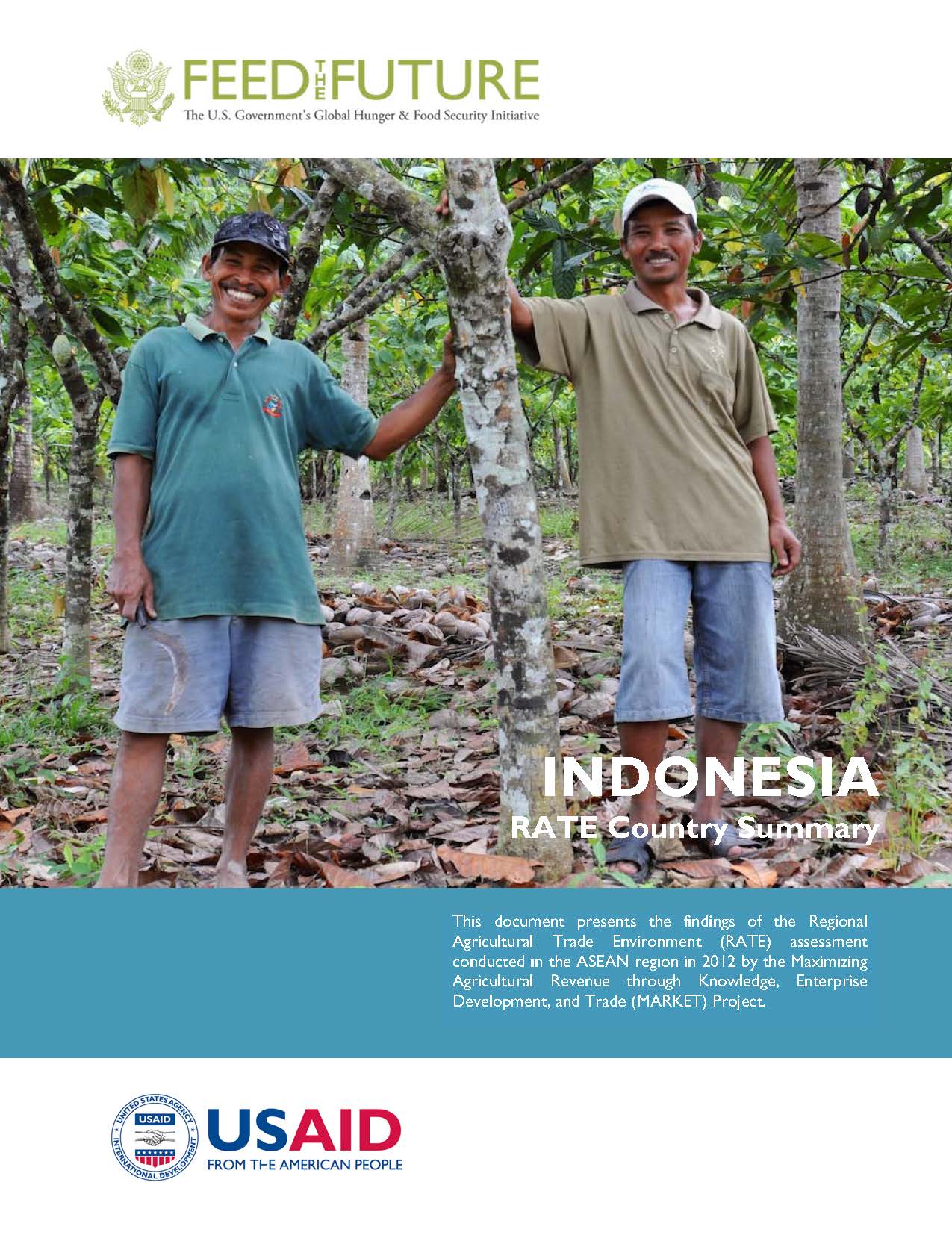Home » Indonesia Regional Agricultural Trade Assessment Report
![]() (1 MB) Indonesia RATE summary
(1 MB) Indonesia RATE summary
Diverse, dynamic, crowded, and spread across an archipelago of some 17,500 islands spanning more than 5,000 km, Indonesia faces some of the most vexing food security challenges in the ASEAN region. The food price crisis of 2007-2008 hit Indonesia hard, with threats of rioting compelling the government to dramatically increase subsidies on rice and other staples. Since then, the country has pursued a strategy of rice “self-sufficiency,” as well as diversification of its mix of agricultural staples and high-value crops, along with protection of the domestic market from high-value crop imports.
Indonesia faces a variety of challenges with respect to continued growth and progress toward a level of economic and food security that benefits all. Farmers’ problems include access to inputs, markets, and finance. Small and medium-sized enterprises (SMEs) in rural areas are disadvantaged by significant limitations on access to finance, along with bureaucratic and expensive business licensing requirements. Larger companies and traders are especially concerned about nontariff barriers, both with respect to importing products, as well as exporting raw materials.
Although Indonesia has shown steady growth and reduced poverty gradually in recent years, improvements in the legal and institutional environment for doing agricultural business at numerous points in the country’s value chains could reduce inefficiencies in productivity, cut waste, and connect farmers with the markets they need.
Issuing Country
Date
Wednesday, April 23, 2014 - 12:15am








Comment
Make a general inquiry or suggest an improvement.